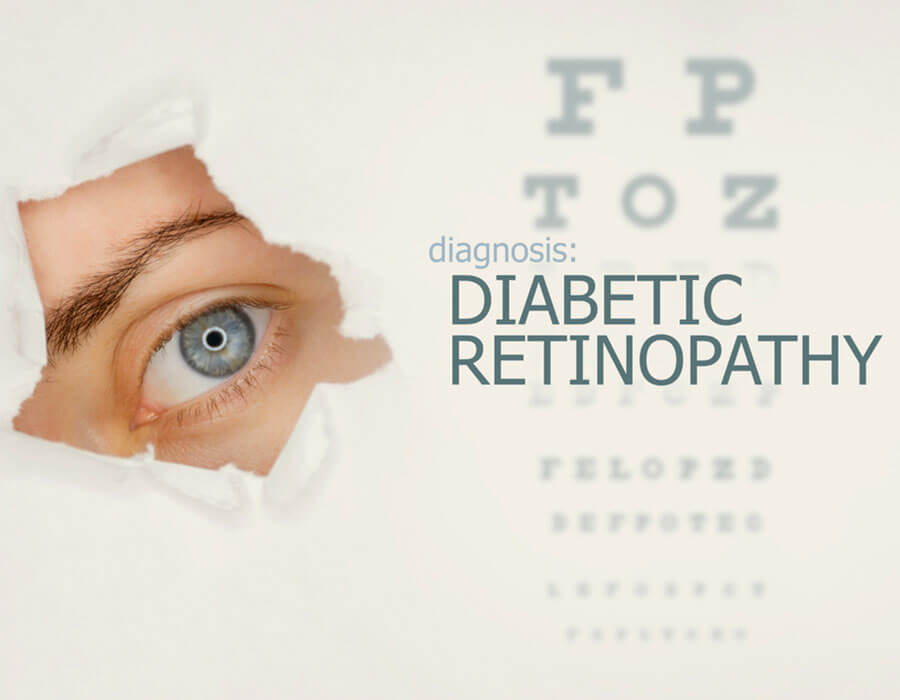Diabetic Retinopathy

Diabetes mellitus, commonly known as diabetes, is a metabolic disease that causes high blood sugar, which damages various organs and tissues of the body like Brain, Eye, Kidneys, Nerves. When it affects the eyes its called Diabetic Retinopathy. As per a survey, the prevalence of Diabetic Retinopathy (DR) is close to 16.9%, and the prevalence of sight-threatening DR is 3.6% (Source). But, what are the common symptoms of Diabetic Retinopathy? Can Diabetic Retinopathy be reversed? Let us unlock answers to these questions and more.
What is Diabetic Retinopathy?
Abnormally high blood sugar levels can damage the retina and result in vision loss and eventually lead to total blindness. If you are a diabetic, it is advisable to visit the eye doctor regularly(every 6 months) and monitor Diabetic Retinopathy symptoms.
Diabetic Retinopathy symptoms:
At first, diabetic retinopathy may cause no symptoms or only mild vision problems. Eventually, it can cause blindness. There is a possibility that you might be having diabetic retinopathy for a while and are not aware of it.
Here are the common symptoms that arise at later stages of diabetic retinopathy:
- Blurred or patchy vision, that’s gradually worsening with time
- Fluctuating vision
- Witnessing Floaters or Streaks in the vision.
- Noticing dark (or empty) areas in the field of vison
- Impaired colour vision
- Sudden loss of vision
In case you are experiencing any of the above-mentioned symptoms, you should visit an eye doctor to avoid the occurrence of additional complications.
Stages of Diabetic Retinopathy
There are 2 main stages of Diabetic Retinopathy.
Non- Proliferative diabetic retinopathy.
Many people with diabetes have this and is the earliest stage of diabetic eye disease,
In NPDR tiny blood vessels in the retina leak, making it to swell. When this happens at the macula (responsible for central vision) it is called macular edema and is the most common cause of decreased vision in diabetics. Decreased blood supply to the macula in diabetics also hampers vision.
Proliferative diabetic retinopathy
PDR is a more advanced stage of diabetic eye disease. Usually starts with the retina growing new blood vessels, which are fragile and tend to bleed into the vitreous (gel like substance inside the eye).
These new blood vessels can form scar tissue. Scar tissue can cause problems with the macula or lead to a detached retina.
PDR is very serious, and can steal both your central and peripheral (side) vision
Am I at risk of Diabetic Retinopathy?
You are at a greater risk if you :
- Have had diabetes for a long time(>5yrs)
- Have unctrolled blood sugar levels
- Have high BP
- Have high Cholesterol
Can Diabetic retinopathy be reversed?
The main focus of various diabetic retinopathy treatments is to slow down the progression of the disease in a bid to save the vision that is left un-impacted. Some of the ways through which the progression of diabetic retinopathy can be kept under control are :
- Maintaining a healthy lifestyle and a healthy diet
- Smoking control/ cessation
- Avoid consumption of alcohol
- Manage your blood-sugar levels on a regular basis
- Control of hypertension
- Schedule regular visits to diabetic retinopathy specialist and take medications as per the doctor’s recommendations
In a nutshell, diabetic retinopathy is not completely curable, but timely treatment minimizes the risk of vision loss.
Diabetic Retinopathy Treatment
The main treatment for retinopathy is the management of the blood-sugar levels (i.e. keeping diabetes under strict control). Apart from this, a diabetic retinopathy specialist can play a key role in slowing down the loss of vision. Here are some of the treatments available for diabetic retinopathy:
Intravitreal Injections
Diabetic retinopathy specialists use intravitreal injection – a medication that is delivered using a needle into the vitreous humor to reduce the swelling of the macula, slowing vision loss and perhaps improving vision.
Laser Treatment
Laser treatment is one of the preferred ways of addressing advanced cases of diabetic retinopathy. Helps to seal off the leaking blood vessels in the retina. It also treats Diabetic Macular Edema (DME) which causes blurry vision due to the extra fluid in the macula.
Vitreoretinal Surgery
If diabetic retinopathy has progressed to an advanced stage, laser treatment might not be effective. Vitreo-retinal surgery helps to remove the extra quantity of scar and blood that are accumulated in the eye during the advanced stage of the diabetic eye disease
How can we help?
A stitch in time saves nine! Early detection and early intervention of diabetic eye disease helps to preserve precious vision. We can help you with proper diagnosis using advanced technology and offer best-in-class eye treatment.